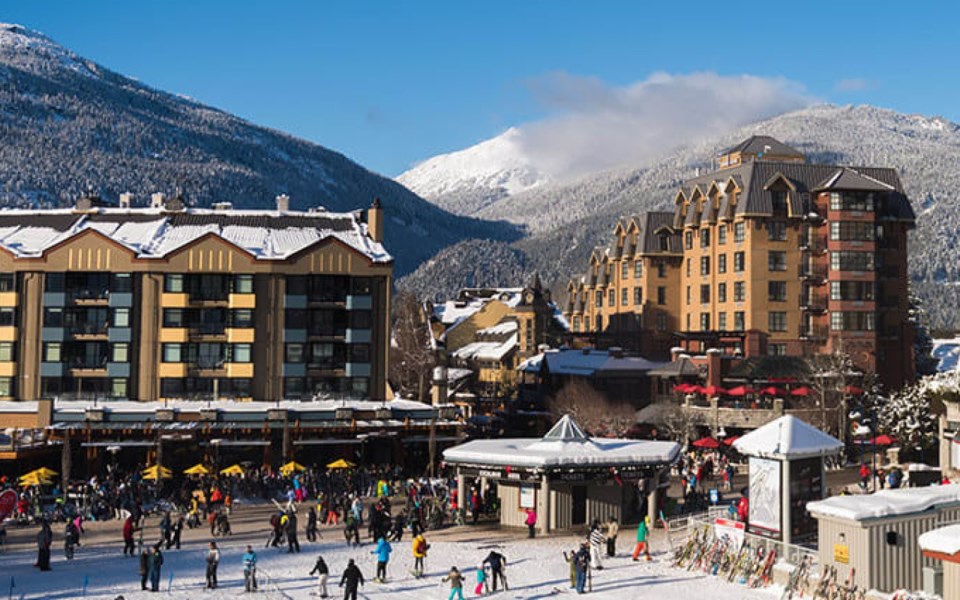For those who have only resided in Whistler the past few years or so, it can be easy to forget how cyclical the resort's tourism business can be.
In the past 20 years alone, Whistler has seen distinct ebbs and flows, from the decline in travel following the 9-11 terrorist attacks, a soft U.S. market in 2004, followed by the global recession in 2008, before picking back up again leading into the 2010 Olympics. For the past five years, Whistler has enjoyed mostly steady growth, with several visitation records broken.
But with economies softening around the world, forecasts predict that we're in for a global travel recession that will undoubtedly impact Canada's largest ski resort.
"The best insulation for that is to have a balanced portfolio of markets to ensure we're attracting different markets at different times of year, and we have different pricing and packaging and programming strategies," explained Tourism Whistler (TW) president and CEO Barrett Fisher. "It is a constant, ever-changing landscape, so we are always looking at what's ahead and how we adapt, program and package accordingly."
As Whistler has seen its tourism numbers climb in recent years, TW has emphasized pushing visitation into off-season and midweek periods, a strategy that has mostly proven effective so far.
"I think it has been successful, and what we're seeing in the high-demand months ... (is) our highest pricing from an accommodation perspective. As a result of that, we have some markets that really want to come in peak periods and are prepared to pay the higher price," said Fisher. "But then we've got off-peak times, which are equally attractive to visit, but then it might be more attractive for maybe a regional market, which comes more often and is looking for better value for money. I think what we're really trying to do is make sure we're shifting not only our pricing but also our programming as a destination to try to effectively attract people."
Looking at hotel room-night bookings for this winter, once the numbers are finalized, TW is forecasting a two-per-cent drop from 2017-18, which was itself down one per cent from the previous year.
After several years of steady summer growth—excluding 2017, which was flat—Fisher said this summer is pacing for a two-per-cent decrease in room-night bookings compared to 2018.
"In fact, our pace is showing strong (room-night bookings) for some of the early summer months, but a little bit weaker in the later summer and fall months," Fisher recounted. "Part of that is due to conference business."
A key driver of shoulder-season visitation, conference business can be somewhat volatile year over year.
"You might have a large group that comes one year and then it doesn't repeat another, so you'll see ups and downs as a result of that," Fisher noted. "We think there will be some ebbs and flows, but our team is working hard trying to fill some of the months that are looking a little softer."
Another potentially concerning factor on the horizon is the growing political tension in some of Whistler's key markets. Although the Chinese tourist makes up less than one per cent of Whistler's visitation, growing trade tensions between the U.S. and Chinese governments could have widespread global implications.
"Could that potentially speed up the concerns about a U.S. and global recession? That certainly is on our radar as a concern," Fisher said, adding that lingering uncertainty over Brexit is another issue TW is keeping track of.
There are positives on the horizon, however. Fisher said that, with both Vancouver and Abbotsford's international airports experiencing increased traffic, coupled with air access opening up important new markets, Whistler stands to benefit.
Fisher believes the resort is also better equipped to weather an economic and tourism downturn than in the past, due in part to "more sophisticated forecasting tools" and a better understanding of the natural ups and downs of the tourism industry.
"We have history behind us to really understand what some of the triggers are and how we as a resort are impacted by them," she said. "I think we now have the experience of understanding the cyclical nature of regional, national and international economies, and I think we also understand the cyclical nature of weather patterns and the cyclical nature of different market and audience trends. Putting all these things together, it certainly helps us with planning for the future and trying to diversify our market mix, but that's not to say that we're insulated, because tourism is not a core need."
At its AGM earlier this month, TW elected three incumbent members by acclamation to its board of directors: Saad Hasan, GM at Lodging Ovations; Steve Seatle, executive GM for ResortQuest Whistler; and Roger Soane, president and CEO of Whistler Sport Legacies.




